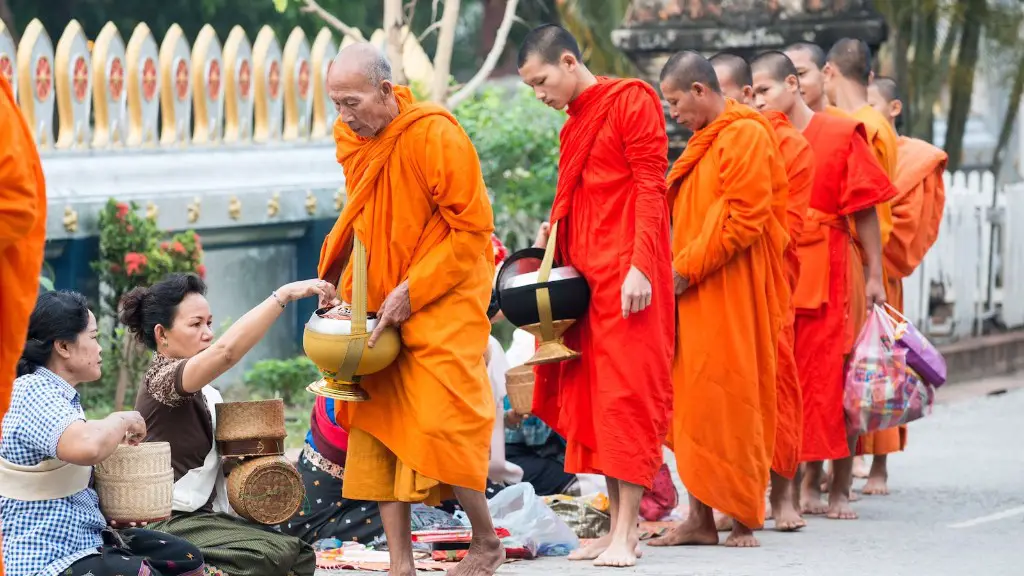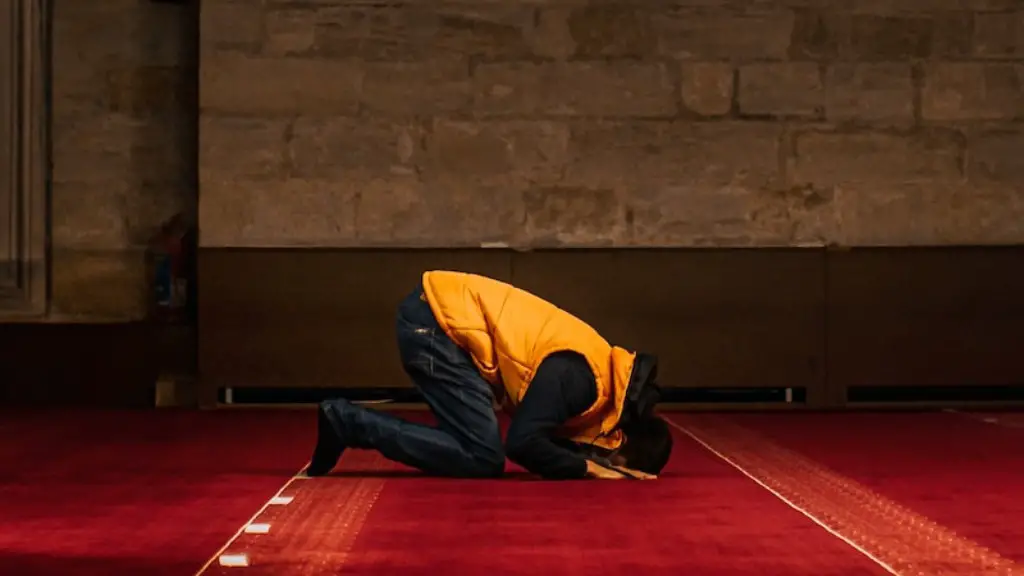Hinduism is one of the world’s oldest religions and millions of people around the world practice it faithfully. Hinduism has many holidays, many of which are celebrated with a lot of pomp and show. The main holidays celebrated in Hinduism are Diwali, Holi, Durga Puja, Rakshabandhan, and Karwa Chauth. These major festivals are celebrated throughout India and many other countries with a significant Hindu population.
Diwali is one of the most important Hindu festivals and is significant in many ways. It is a five-day celebration during which Hindus perform Pujas and light diyas or lamps. Diwali is a time to celebrate the victory of good over evil and is usually celebrated in November or October. Diwali is a major event that brings families and communities together. People exchange gifts, pray to the gods and goddesses, share sweets, and visit homes of friends and relatives.
Holi is another festival celebrated during the spring season which is known as the Festival of Color. It is celebrated over two days and is a popular event that is enjoyed by people all over the world. Hindus wear bright colored clothes and powder themselves with paint and perfume. They share sweets and light bonfires on the second day of the festival. People gather together in temples, homes and parks to enjoy the celebrations and mark the end of winter.
Durga Puja is a festival which honours the goddess Durga who is the goddess of strength and power. It is a ten-day festival and is celebrated in October or early November. People make effigies of the goddess and chant mantras and hymns devoted to her. They also visit temples, prepare special desserts and offer sacrifices to the goddess.
Rakshabandhan is another important festival that celebrates the bond between siblings. It is celebrated in August or September and involves the sister tying a rakhi or a thread around her brother’s wrist. The brother in turn promises to love and protect his sister.
Karwa Chauth is a festival which is especially celebrated by married women who fast throughout the day in order to bring long life and prosperity to their husband. It is usually celebrated in October and involves women wearing traditional clothes, performing rituals and later breaking the fast when the moon is visible.
These major festivals of Hinduism are celebrated with great joy and enthusiasm. They bring families and communities together and are an important part of Hinduism that celebrates the values that the religion is built upon.
Impact of Hinduism Holidays on Popular Culture
Hinduism holidays have had a tremendous impact on popular culture, with many stories, films and books influenced by them. People from various cultures around the world have come to be familiar with some of these festivals, such as Diwali and Holi. These festivals have been incorporated into popular culture in various ways, with people creating their own rituals, stories, and art influenced by the holidays.
Hinduism festivals are a part of popular culture in many countries, with some authors and filmmakers creating stories and films which capture the essence of the festivals. The festivals have been portrayed in books, films, and other forms of media, helping to spread the stories and celebrations of these festivals around the world. Many music and dance performances around the world also explore Hinduism holidays and their significance.
The holidays also play a part in many political debates, with some politicians often emphasizing Hindu festivals and their importance in the countries they govern. This is especially the case in India, where many politicians use Diwali and other holidays to further political agendas.
Rituals and Celebrations of Hinduism Holidays
Hinduism holidays involve a variety of rituals, which are both spiritual and social in nature. For example, Diwali is a five-day celebration in which people light diyas or lamps, perform puja and exchange gifts. Holi is celebrated with a variety of rituals, including the throwing of colored powders and the lighting of bonfires. Durga Puja involves making effigies of the goddess and preparing special desserts, while Rakshabandhan celebrates the bond between siblings with a thread tied around the brother’s wrist. Lastly, Karwa Chauth is celebrated by married women who fast and offer sacrifices to the gods to bring long life and prosperity to their husband.
Hinduism holidays have a significant impact on culture, rituals and celebrations. The holidays are celebrated in many countries all over the world, with communities coming together to celebrate in a variety of ways. These holidays bring joy, peace, and happiness to homes and communities, helping to bring people together and promote harmony. They also provide an opportunity for families to come together to celebrate and honor the values of Hinduism.
Symbols and Customs For Hinduism Holidays
Hinduism holidays have many symbols and customs associated with them. For example, Diwali is often celebrated with diyas or small oil lamps which are lit to symbolize the victory of good over evil. Holi is often celebrated with colors and powder paint, which symbolize joy and happiness. Durga Puja is celebrated with effigies of the goddess, whilst Rakshabandhan celebrates the bond between brothers and sisters with a colorful thread. Karwa Chauth is a fast celebrated by married women to bring long life and prosperity to their husbands.
These symbols and customs are an important part of Hinduism holidays and are celebrated throughout India and many other countries with a significant Hindu population. They connect the stories, rituals and spiritual aspects of the festivals and help to bring families and communities together. The symbols also help to remind us of the spiritual significance of the festivals and their connection to Hinduism’s major gods and goddesses.
Contribution Of Hindusim Holidays To Indian Culture
Hinduism holidays play an important role in Indian culture, with the festivals having a huge influence on the social, cultural and religious life of millions of Indians. These festivals bring families and communities together, with celebrations taking place in cities, towns and villages. Many of these festivals are celebrated by not just Hindus, but other religious groups as well. This helps to promote communal harmony and to reinforce the importance of family, love and friendship.
Hinduism holidays are also celebrated in countries all over the world with large Hindu populations, such as the United Kingdom, the United States, Canada, and South Africa. In some of these countries, the festivals are celebrated with public events and parades, helping to promote Hindu culture and promote knowledge and understanding of this ancient religion.
Hinduism holidays also contribute to the economy of India, with the festivals bringing in large numbers of tourists each year and helping to promote local businesses. In addition, these festivals help to create employment opportunities for many people, including vendors and shopkeepers, musicians and performing artists, and workers in the hospitality industry.
Religious Significance Of Hinduism Holidays
Hinduism holidays are significant for many religious reasons, as they celebrate various gods and goddesses, stories and symbols which are important to Hinduism. The festivals often involve special rituals, which bring people together in prayer, help to promote social harmony, and remind us of the importance of Hindu values.
Some of the festivals also have a spiritual significance, such as Diwali which celebrates the victory of good over evil, and Holi which marks the end of winter and the start of spring. Religious gatherings during the festivals help to create a sense of community and to strengthen the bonds between families and communities.
The festivals of Hinduism also bring cultural and social awareness, with people coming together to celebrate the festivals and learn more about the values of Hinduism. This helps to create a sense of belonging, as well as to promote understanding and acceptance among different cultures.
Conclusion
Hinduism holidays are an important part of the Hindu religion and are celebrated with a lot of enthusiasm and joy. The festivals bring families and communities together and help to spread the message of Hinduism. They help to create a sense of belonging, create employment opportunities and become an important part of popular culture. Hinduism holidays are also important for their religious significance as they remind us of the ancient stories and values of Hinduism.


